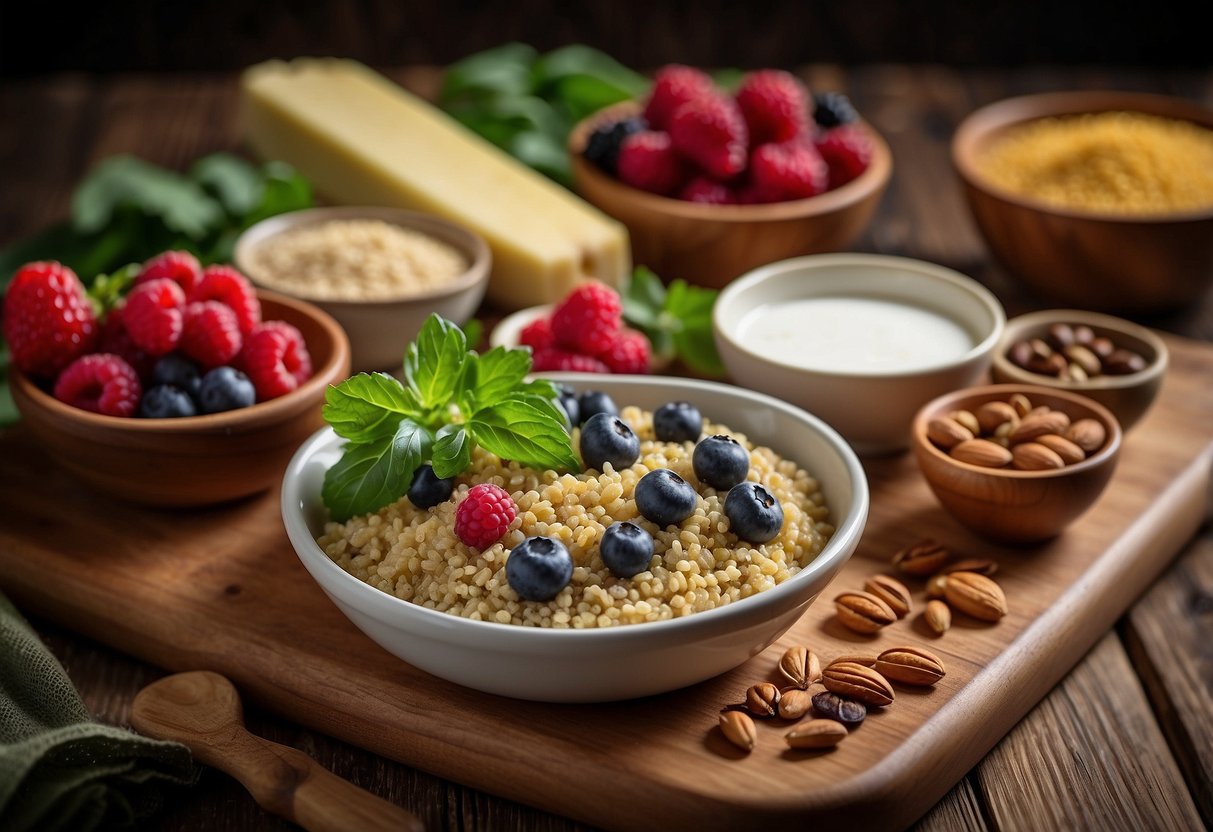
3) Kale
Kale is a leafy green vegetable rich in essential nutrients. It belongs to the Brassica family, which includes cauliflower, broccoli, and Brussels sprouts. Known for its robust vitamin content, kale is particularly high in vitamins A, C, and K.
One of kale’s standout features is its high fiber content. This assists in digestion and helps maintain a healthy gut. Additionally, it contains antioxidants, which play a role in reducing inflammation and protecting against chronic diseases.
Kale can be consumed in various forms. It can be eaten raw in salads, added to smoothies, or lightly sautéed. The versatility of kale makes it easy to incorporate into different meals throughout the day.
Rich in calcium, kale supports bone health. This is particularly beneficial for individuals who are lactose intolerant or prefer plant-based sources of calcium. Including kale in the diet can contribute to maintaining strong bones and teeth.
Furthermore, kale is low in calories yet provides a feeling of fullness. This makes it an excellent choice for those looking to manage their weight without sacrificing nutritional value.
4) Quinoa

Quinoa is a versatile grain known for its nutritional benefits. It is rich in protein, making it a great option for those looking to increase their protein intake. Additionally, quinoa is gluten-free, which makes it suitable for individuals with gluten intolerance or celiac disease.
This grain is also packed with essential amino acids that the body needs but cannot produce on its own. It contains high levels of fiber, which can aid in digestion and help maintain a healthy weight. Quinoa is also a source of important minerals such as magnesium, iron, and zinc.
Quinoa’s versatility is a significant advantage. It can be used in a variety of dishes, from salads to main courses. It has a mild flavor that can easily absorb spices and seasonings, making it adaptable to different culinary traditions.
Cooking quinoa is straightforward. Rinse the grains thoroughly before boiling them in water or broth until they become tender. This simplicity makes it easy to incorporate quinoa into everyday meals, providing a quick and nutritious option for busy schedules.
5) Turmeric

Turmeric, known for its vibrant yellow-orange color, has been used in traditional medicine for centuries. It is a popular spice in many dishes, particularly in Indian cuisine. The primary active ingredient in turmeric is curcumin, which has potent anti-inflammatory and antioxidant properties.
Incorporating turmeric into your daily diet can provide numerous health benefits. Studies suggest that it may help reduce inflammation, which is beneficial for individuals with arthritis or other inflammatory conditions. Curcumin is also being researched for its potential role in cancer prevention and treatment.
Adding turmeric to your diet is simple. It can be used in soups, stews, smoothies, and teas. Golden milk, a popular beverage, combines turmeric with milk and spices like black pepper and cinnamon. Black pepper enhances the absorption of curcumin, making it more effective.
Ground turmeric is readily available in most grocery stores. Fresh turmeric root can also be found in some markets and can be grated into recipes for an extra kick. The spice is versatile and can complement both savory and sweet dishes.
While turmeric is generally safe for most individuals, excessive consumption can lead to digestive issues. It is recommended to start with small amounts and gradually increase intake as your body adjusts. Consulting with a healthcare provider is always wise, especially if you have existing health conditions or are on medication.



